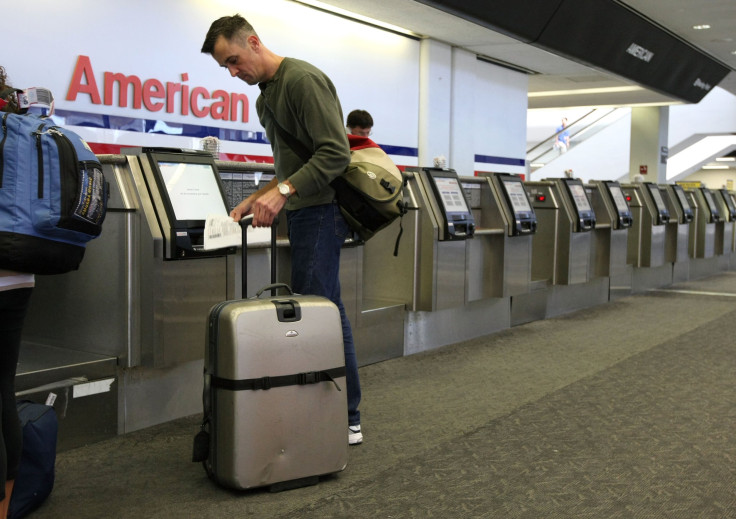Airline Fees To Top A Record $50 Billion This Year

If you feel like you’re shelling out a lot more money on top of the price of an airline ticket whenever you take a trip recently, you’re probably right. According to a new study by airline consulting firm IdeaWorksCompany, the airline industry will rake in $49.9 billion in ancillary fees this year, up 17.2 percent from the estimated $43 billion in 2013. In 2002, ancillary fees accounted for $22.6 billion.
Ancillary revenue is defined by the study as any activity beyond the base price of the flight and can include things like checked baggage fees, premium seating assignments, sales of food during a flight, commissions gained from hotel booking, and the sale of frequent flier miles to partners. Non-fee activity, which included frequent flier sales and commissions on other services, accounted for $21.4 billion of the total.
But most of the global ancillary revenue total -- $28.5 billion -- comes from the fees passengers are confronting more frequently every day, like paying for checked and even carry-on luggage, priority seating, food on board the flight, and more.
"The airlines are becoming better retailers on their websites and mobile apps when it comes to selling services and upgrades," Jay Sorensen, president of IdeaWorks, told CNBC. "At the same time, people are adjusting their expectations and becoming more accustomed to these fees, and they are paying them."
And it’s not just American carriers that are nickel-and-diming their customers. Foreign airlines have jumped on the fee-for-all bandwagon. According to the study, many international airlines now charge fees for the first checked bag. Such carriers include Lufthansa, Etihad Airways, Avianca and China Southern.
And while the airlines initially blamed the addition of fees for services like checked luggage on escalating fuel costs, they aren’t changing their tune now that those costs have come down. Instead, these fee increases come at a time when the airlines are already raising the price of fares, despite huge profits and falling fuel prices. The average cost of a round-trip domestic ticket in the U.S. is $509 -- up 10.7 percent from five years ago, according to data analyzed by the Associated Press.
“Traditional carriers are becoming more assertive and aggressive in the search for new revenue. But traditional airlines face risks if they choose this path with little planning,” said Sorenson. “Consumers are best served when choice is accompanied with better value. Merely charging a fee for a service that was once free may quickly degrade the brand of a traditional airline and alienate their core consumer base.”
© Copyright IBTimes 2025. All rights reserved.





















